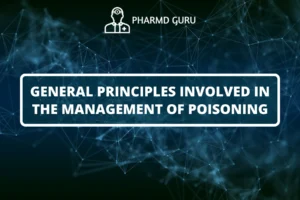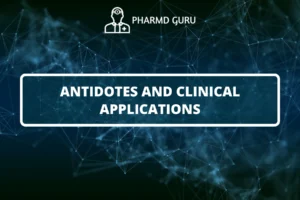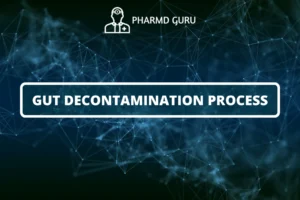Amphetamines are a class of central nervous system stimulant drugs that are commonly used for their therapeutic effects in treating attention deficit hyperactivity disorder (ADHD) and narcolepsy. However, misuse or overdose of amphetamines can lead to poisoning, which requires prompt medical attention. In this article, we will explore the mechanism of amphetamines, their abuse potential, clinical symptoms of amphetamine poisoning, investigations for diagnosis, and the management of amphetamine overdose.
SCROLL DOWN TO THE BOTTOM OF THE PAGE FOR ACTUAL NOTES
TABLE OF CONTENTS:
- Introduction
- Mechanism of Amphetamines
- Abuse Potential of Amphetamines
- Clinical Symptoms of Amphetamine Poisoning
- Investigations for Diagnosis
- Management of Amphetamine Overdose
1. Introduction
Amphetamines are synthetic drugs that stimulate the release of certain neurotransmitters in the brain, such as dopamine, norepinephrine, and serotonin. They are prescribed for medical purposes, but their recreational use and misuse can lead to amphetamine poisoning or overdose.
2. Mechanism of Amphetamines
Amphetamines exert their effects by increasing the release and inhibiting the reuptake of neurotransmitters, particularly dopamine, in the brain. This results in increased arousal, enhanced focus, and a sense of euphoria. However, excessive stimulation of the central nervous system can lead to toxic effects.
3. Abuse Potential of Amphetamines
Due to their stimulant properties and ability to produce euphoria, amphetamines have a high potential for abuse. Individuals may misuse these drugs for recreational purposes, to enhance performance, or to experience the euphoric effects. Prolonged and excessive use can lead to addiction and increase the risk of amphetamine poisoning.
4. Clinical Symptoms of Amphetamine Poisoning
In cases of amphetamine poisoning or overdose, individuals may exhibit a range of symptoms, which can vary in severity. These symptoms may include:
- Agitation and restlessness
- Excessive sweating
- Tremors or muscle twitches
- Increased heart rate and blood pressure
- Dilated pupils
- Hyperthermia (elevated body temperature)
- Confusion or delirium
- Seizures
- Chest pain or cardiac arrhythmias
- Respiratory distress
5. Investigations for Diagnosis
Diagnosing amphetamine poisoning is based on clinical assessment, history of drug use, and supportive investigations. The following investigations may be performed:
- Blood tests: To assess drug levels, electrolyte imbalances, and markers of organ dysfunction.
- ECG (Electrocardiogram): To evaluate cardiac function and detect any abnormalities.
- Urine toxicology screening: To confirm the presence of amphetamines or related substances.
6. Management of Amphetamine Overdose
Managing amphetamine overdose requires immediate medical intervention. The primary goals of treatment include:
- Ensuring adequate airway and breathing: Supplemental oxygen may be administered, and respiratory support may be required in severe cases.
- Stabilizing vital signs: Monitoring and managing heart rate, blood pressure, and body temperature are essential.
- Administering antidotes (if available): In certain cases, specific antidotes such as benzodiazepines or alpha-adrenergic blockers may be used to manage specific symptoms.
- Supportive care: Close monitoring, intravenous fluids, and symptomatic treatment for seizures, hyperthermia, or cardiac abnormalities may be necessary.
- Psychiatric evaluation and counseling: After stabilization, individuals should receive appropriate psychological support and addiction counseling.
ACTUAL NOTES




